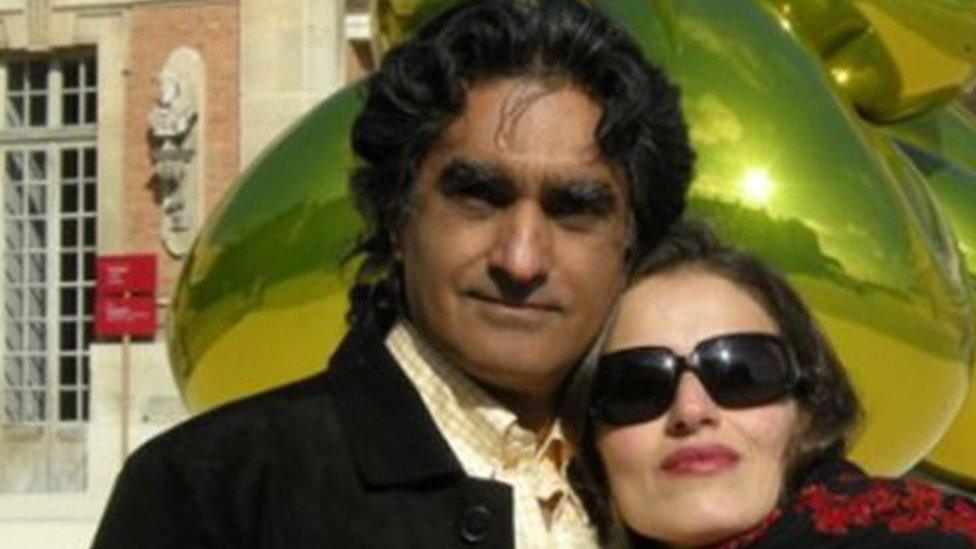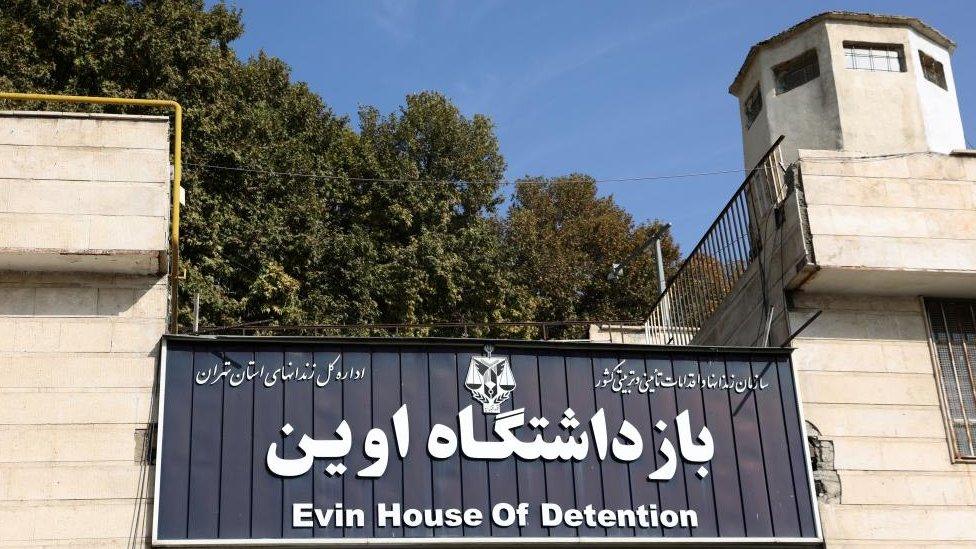Iran 'jails Iranian-American gallery owner and wife'
- Published

Karan Vafadari and Afarin Nayssari were reportedly arrested in Tehran in July 2016
A court in Iran has reportedly handed an Iranian-American man and his wife lengthy prison terms after convicting them on espionage and other charges.
The US-based Center for Human Rights in Iran (CHRI) quoted a letter from art gallery owner Karan Vafadari, external as saying that he had been sentenced to 27 years.
He added that his wife Afarin Neyssari, an architect who has US permanent residency, had got a 16-year sentence.
There was no immediate confirmation from the Iranian authorities.
The couple, who are Zoroastrians, were arrested by Iran's powerful Revolutionary Guards at Tehran's international airport in July 2016, according to the CHRI.
Two weeks later, the Tehran prosecutor announced that "two Iranian dual nationals" had been charged with hosting parties for foreign diplomats and Iranian associates during which men and women mixed and alcohol was served.
Iran's constitution says adherents of Zoroastrianism - an ancient, pre-Islamic religion - are not subject to Islamic laws on alcohol and mixed gender gatherings.
In early 2017, further charges were brought against Mr Vafadari and his wife, external, including "co-operation with enemies of the state", "activities to overthrow the regime" and "recruitment of spies through foreign embassies".
In his letter from Tehran's Evin prison dated 21 January, Mr Vafadari vigorously rejected all the charges he and his wife faced and denounced the "unjust and tyrannical" sentences handed down by a Revolutionary Court the previous week.
Mr Vafadari warned fellow Zoroastrians that in addition to his sentences on the espionage charges, he had been given an 18-month term, condemned to 74 lashes and fined $38,000 for keeping alcohol.
He said he received a further three-year term and was fined $162,000 for accepting alcoholic drinks as gifts from diplomats, and 15 years for "corruption and depravity" as a result of hosting mixed gender gatherings at his home.
Mr Vafadari wrote that he had also become the first Iranian to be convicted under a little-used law that allows for the properties of dual nationals who have willingly given up their Iranian citizenship to be seized and sold at auction.
Mr Vafadari's US-based son, Cyrus, told the Wall Street Journal that the legal process had been "opaque", external and that his father and stepmother would "appeal and fight for a fair ruling, which will prove their innocence".
The US state department said it was aware of Mr Vafadari's sentence and called for the "immediate release of all US citizens unjustly detained and missing in Iran".
Iran does not recognise dual nationals and denies them access to consular assistance.
At least 30 dual nationals - most of them Europeans or Americans - are believed to have been detained in Iran over the past three years, mostly on spying charges. Analysts say hardliners see them as bargaining chips in negotiations with the West.
The dual nationals currently in prison include Nazanin Zaghari-Ratcliffe, a British-Iranian charity worker; Iranian-American businessman Siamak Namazi and his elderly father Baquer, a former Unicef representative; and Abdolrasoul Dorri Esfahani, an Iranian-Canadian who was part of Iran's nuclear negotiating team.
- Published19 September 2023
